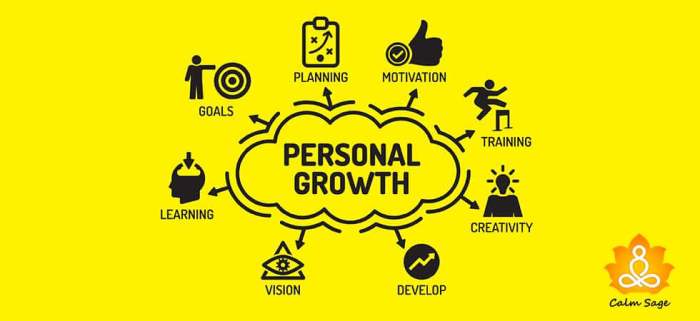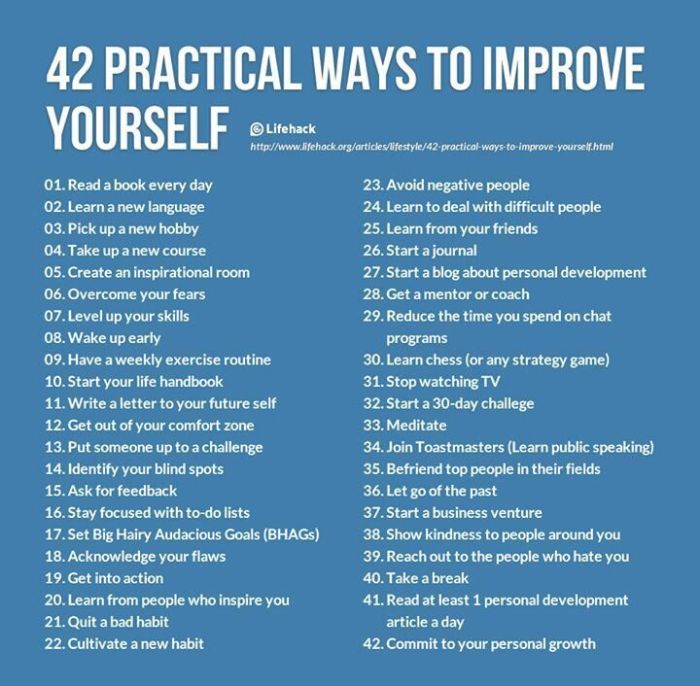Get ready to level up with Self-Improvement Tips, where we dive into the key strategies for personal growth that can lead to a happier and more fulfilling life.
From setting goals to overcoming obstacles, this guide will help you unleash your best self.
Importance of Self-Improvement

Self-improvement is crucial for personal growth as it allows individuals to continuously strive to better themselves in various aspects of their lives.
Increased Happiness and Fulfillment
Engaging in self-improvement activities can lead to increased happiness and fulfillment as individuals work towards achieving their goals and becoming the best version of themselves.
Benefits in Various Aspects of Life
- Career: Self-improvement can enhance skills, knowledge, and productivity, leading to career advancement and success.
- Relationships: Improving oneself can result in better communication, empathy, and understanding, fostering healthier and more fulfilling relationships.
- Health: Self-improvement in terms of physical fitness, mental well-being, and self-care practices can lead to a healthier and happier lifestyle.
Setting Goals for Self-Improvement

Setting goals for self-improvement is crucial for personal growth and development. It provides direction, motivation, and a sense of accomplishment when achieved. Here are some tips on how to set realistic and achievable goals for self-improvement:
Importance of Short-Term and Long-Term Goals
Setting both short-term and long-term goals is essential for a well-rounded self-improvement journey. Short-term goals help you stay focused and motivated in the present, while long-term goals provide a vision for the future. It’s important to strike a balance between the two to ensure steady progress.
- Short-term goals: These are goals that you can achieve in the near future, usually within a few days to a few months. Examples include reading a book every month, exercising three times a week, or learning a new skill.
- Long-term goals: These are bigger, more overarching goals that may take months or even years to accomplish. Examples include getting a promotion at work, starting a business, or running a marathon.
Examples of Specific Goals for Self-Improvement
Here are some examples of specific goals you can set for self-improvement in different areas of life:
| Health & Fitness | Personal Development | Career & Finance |
|---|---|---|
|
|
|
Strategies for Self-Improvement: Self-Improvement Tips
Self-improvement is a journey that requires dedication and commitment. There are various strategies and techniques that can help individuals enhance their personal growth and development. From time management to habit formation, each strategy plays a crucial role in the self-improvement process.
Time Management
Effective time management is essential for achieving personal goals and maximizing productivity. By prioritizing tasks, creating schedules, and eliminating distractions, individuals can make the most out of their time and focus on activities that contribute to their self-improvement journey.
Habit Formation
Building positive habits is key to long-term self-improvement. By starting small and gradually incorporating new habits into daily routines, individuals can create lasting changes that lead to personal growth. For example, practicing gratitude daily or setting aside time for self-reflection can help cultivate a positive mindset and improve overall well-being.
Self-Reflection
Self-reflection allows individuals to assess their progress, identify areas for improvement, and set new goals. By regularly reflecting on their actions, thoughts, and emotions, individuals can gain valuable insights that guide them towards personal growth. Journaling, meditation, or seeking feedback from others are effective ways to practice self-reflection.
Role of Self-Discipline and Consistency
Self-discipline and consistency are essential components of the self-improvement process. By staying committed to their goals, maintaining a positive mindset, and overcoming obstacles, individuals can build resilience and achieve sustainable growth. Consistent effort and discipline are key to making lasting changes and reaching personal milestones.
Overcoming Obstacles in Self-Improvement
To achieve self-improvement, it is crucial to address and overcome common obstacles that may hinder progress on this journey. From procrastination to self-doubt, these challenges can prevent individuals from reaching their full potential. By developing strategies to navigate these obstacles, one can enhance their personal growth and achieve their goals.
Tips to Overcome Procrastination
- Acknowledge the reasons behind procrastination, whether it’s fear of failure, perfectionism, or lack of motivation.
- Break down tasks into smaller, manageable steps to make them less overwhelming.
- Set specific deadlines and hold yourself accountable by sharing your goals with a friend or mentor.
- Eliminate distractions and create a conducive environment for focus and productivity.
- Reward yourself for completing tasks to reinforce positive behavior and motivation.
Tips to Overcome Self-Doubt, Self-Improvement Tips
- Challenge negative thoughts and replace them with positive affirmations and realistic perspectives.
- Seek feedback and validation from others to gain a different perspective on your abilities and strengths.
- Focus on your achievements and past successes to build confidence in your capabilities.
- Practice self-care and prioritize your well-being to cultivate a positive self-image and mindset.
- Engage in personal development activities such as journaling, therapy, or coaching to work through self-doubt effectively.
Importance of Resilience and Perseverance
Resilience and perseverance are essential qualities in achieving self-improvement goals as they enable individuals to bounce back from setbacks and stay committed to their journey. By cultivating resilience, one can navigate challenges with grace and adaptability, while perseverance ensures that they stay focused and dedicated to their goals despite obstacles. Embracing these qualities can empower individuals to overcome adversity and achieve lasting personal growth.